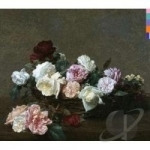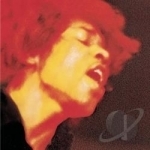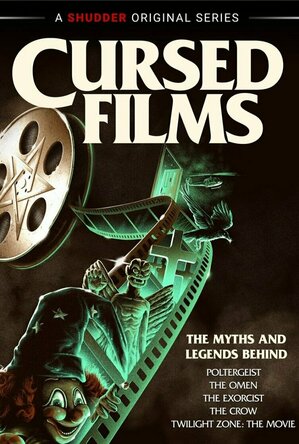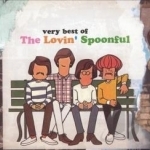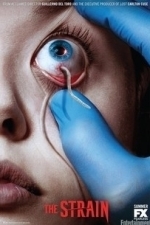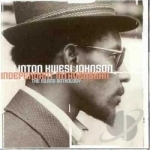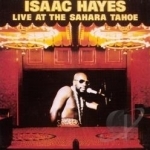Search
Bobby Gillespie recommended Power Corruption & Lies by New Order in Music (curated)
Gene Simmons recommended Electric Ladyland by Jimi Hendrix / Jimi Experience Hendrix in Music (curated)
LeftSideCut (3776 KP) rated Cursed Films - Season 1 in TV
Oct 7, 2020
Cursed Films is a 5 part series focusing on the ins and outs of film productions that were deemed cursed for one reason or another - the 5 parts concentrate on The Exorcist, The Omen, Poltergeist, The Crow, and The Twilight Zone movie respectively.
When this series is focused on the films themselves, it's a real treat. Some of the interviews are moving as hell - in particular the conversations with Richard Sawyer, Lance Anderson, Jeff Most, and Gary Sherman. These guys are to this day still affected by some of the things that happened during their film productions.
The Twilight Zone episode includes footage of the infamous on set accident which is genuinely haunting, and is honestly a really powerful part of the documentary having Sawyer's interview running alongside it.
The Crow episode is great as well, and the look we get at Anderson's relationship with Brandon Lee is so human and raw.
These moments really shine a light on how ridiculous the curse theories are, when in fact, they are just tragic events that effected real people, people who then had to deal with a following media circus.
The big thing I really didn't like about this series is only really relevant to The Omen and Exorcist episodes. It's almost like they didn't have enough material to fill the runtime of these segments, and so opt to pad it out with interviews with real exorcists, or magicians that practice black magic. I'm sure that there are interesting stories to be told by these people, but it feels really out of place and forced here. It's even cringe inducing at times and feels like very obvious filler. It detracts somewhat from what is otherwise a pretty solid documentary series.
Cursed Films is certainly an interesting watch, and is easy to digest in the 30 minute episodes that are presented. Also, that theme music is wild (found out it's by an Italian space-prog band from the 70s called I Signori Della Galassia!)
Worth a watch for sure, just ignore the silly filler parts.
When this series is focused on the films themselves, it's a real treat. Some of the interviews are moving as hell - in particular the conversations with Richard Sawyer, Lance Anderson, Jeff Most, and Gary Sherman. These guys are to this day still affected by some of the things that happened during their film productions.
The Twilight Zone episode includes footage of the infamous on set accident which is genuinely haunting, and is honestly a really powerful part of the documentary having Sawyer's interview running alongside it.
The Crow episode is great as well, and the look we get at Anderson's relationship with Brandon Lee is so human and raw.
These moments really shine a light on how ridiculous the curse theories are, when in fact, they are just tragic events that effected real people, people who then had to deal with a following media circus.
The big thing I really didn't like about this series is only really relevant to The Omen and Exorcist episodes. It's almost like they didn't have enough material to fill the runtime of these segments, and so opt to pad it out with interviews with real exorcists, or magicians that practice black magic. I'm sure that there are interesting stories to be told by these people, but it feels really out of place and forced here. It's even cringe inducing at times and feels like very obvious filler. It detracts somewhat from what is otherwise a pretty solid documentary series.
Cursed Films is certainly an interesting watch, and is easy to digest in the 30 minute episodes that are presented. Also, that theme music is wild (found out it's by an Italian space-prog band from the 70s called I Signori Della Galassia!)
Worth a watch for sure, just ignore the silly filler parts.
Johnny Marr recommended track Coconut Grove by The Lovin Spoonful in Very Best of the Lovin' Spoonful by The Lovin Spoonful in Music (curated)

Cross DJ Pro
Music and Entertainment
App
The best pro DJ app on iPad & iPhone, downloaded by millions worldwide. Mix tracks in perfect sync...
Steven Sklansky (231 KP) rated The Strain - Season 4 in TV
Sep 20, 2017
Fantastic finish (2 more)
Twists and turns, you never see what's coming
Bring the band back together
Heart stopping ending to an amazing show
Contains spoilers, click to show
I thought I should come back and write a review for the completion of the 4th and final season of The Strain. Overall this was a fantastic season and finale. After the 3rd season ended you just thought the vampires were just going to win the whole thing and take over the world. It left you wondering where everyone was going to end up and if they were even going to fight back.
Well fight back they did. The season did start out fairly slow, learning where everyone ended up and what they were doing to win the war. Eff was the one that just gave up until running into some resistance fighters. I guess having your son start a nuclear war will do that. The rest of the team broke off to find was to fight back and kill the master. By episode 4 you saw were everyone was and they were working their way back to New York to kill the Master.
One of the coolest thing I think I got to learn about this season was some back story on Quilan and why he was in the fight. The flashbacks was something I didn't think we were going to get this season.
There were a lot of sad parts to the final 2 episode. Losing the professor I think was the hardest part. Even though he was kranky, everyone still loved him and wanted to see him finally kill the Master, but his did the next best thing and kill his Nazi enemy.
I won't tell you who dies at the end, but if you followed the comics you already know. If you have never watched the show pick it up or stream it. This was a fantastic show and sorry to see it come to a close, but it was a great closing episode, that is so rare sometimes. Happy hunting and if you see a big old wooden coffin, don't open it.
Well fight back they did. The season did start out fairly slow, learning where everyone ended up and what they were doing to win the war. Eff was the one that just gave up until running into some resistance fighters. I guess having your son start a nuclear war will do that. The rest of the team broke off to find was to fight back and kill the master. By episode 4 you saw were everyone was and they were working their way back to New York to kill the Master.
One of the coolest thing I think I got to learn about this season was some back story on Quilan and why he was in the fight. The flashbacks was something I didn't think we were going to get this season.
There were a lot of sad parts to the final 2 episode. Losing the professor I think was the hardest part. Even though he was kranky, everyone still loved him and wanted to see him finally kill the Master, but his did the next best thing and kill his Nazi enemy.
I won't tell you who dies at the end, but if you followed the comics you already know. If you have never watched the show pick it up or stream it. This was a fantastic show and sorry to see it come to a close, but it was a great closing episode, that is so rare sometimes. Happy hunting and if you see a big old wooden coffin, don't open it.
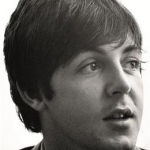
Paul McCartney: The Biography
Book
The first biography written with Paul McCartney's approval and with access to family members and...
HM
Henry Mancini: Reinventing Film Music
Book
Henry Mancini, the first publicly successful and personally recognizable film composer in history,...
